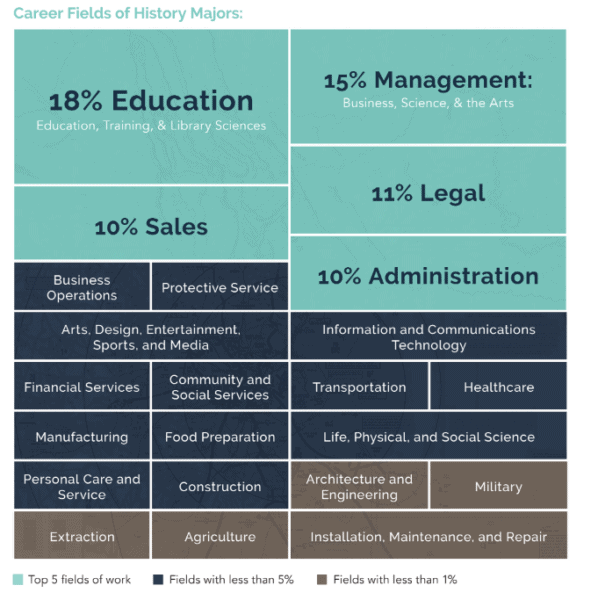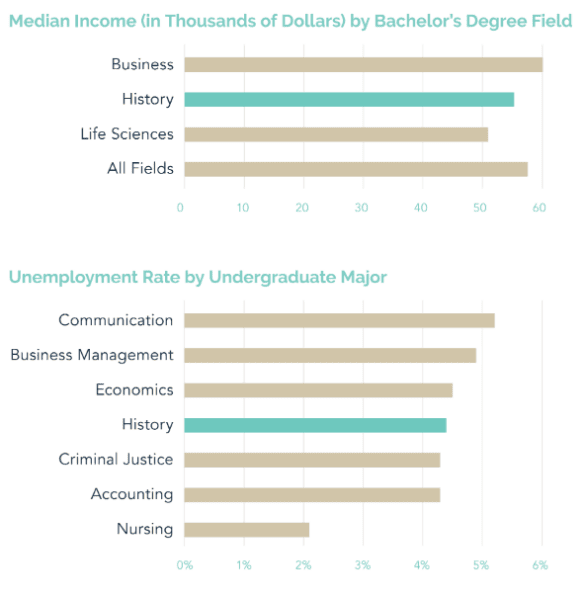This essay is part of the AHA’s Career for History Majors Booklet.
By Paul B. Sturtevant
A history degree doesn’t narrow your opportunities after college. Instead, the history major opens a world of possibilities for your future. Federal government data show the variety of exciting career paths that history majors follow.
History majors pursue a variety of professions, and the majority rise to high positions in the careers they choose.

For a more detailed analysis of this data, see “History Is Not a Useless Major: Fighting Myths with Data.”
College graduates with a degree in history earn median incomes of $55,000. This is only marginally less than the $60,000 earned by business majors, and more than the $51,000 median for people with life sciences degrees.
As you can see, career prospects for history majors are good. You get to decide where your path lies: your degree is a springboard to one of the many fields that value the skills you learned in college.
Median income is the middle data point for all respondents reporting full-time employment, ages 25–64.
From 2010 to 2014, the vast majority of history majors had jobs, with less than 4.5% unemployed.
Data source for all charts: ACS 2010–14, 5-year Public Use Microdata Sample.

Paul B. Sturtevant is a medievalist, social scientist, and public historian. He received a PhD in medieval studies from the University of Leeds and is audience research specialist at the Smithsonian Institution, as well as editor in chief of The Public Medievalist.


